20 School Lessons From the 20th Century That Are Considered Offensive Today
These pieces of curriculum wouldn’t fly in 2018.
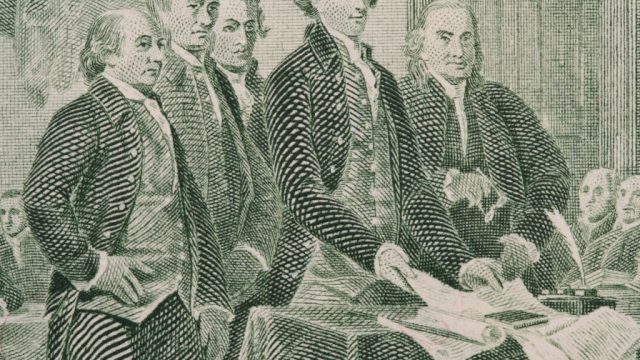
It's simply a fact that our knowledge of the world is forever evolving. And though it may come as a surprise to some people, that also applies to our schooling. Yes, many of the history lessons and "facts" that we learned in school—most notably during the 20th century—don't look so good when revisited in 2018. In some cases, the lessons are straight-up offensive—based on ignorance or misrepresentations of entire groups of people. In other cases, they are merely inaccurate, presenting the facts in misleading ways that may make for a nice story, but isn't supported by historic findings.
With that in mind, here are 20 lessons often taught in previous decades that have likely changed in our current one. So read on, and be sure to unlearn anything you may still be clinging to! And for more history lessons, don't miss the 28 Most Enduring Myths in American History.
1
Columbus Discovered America
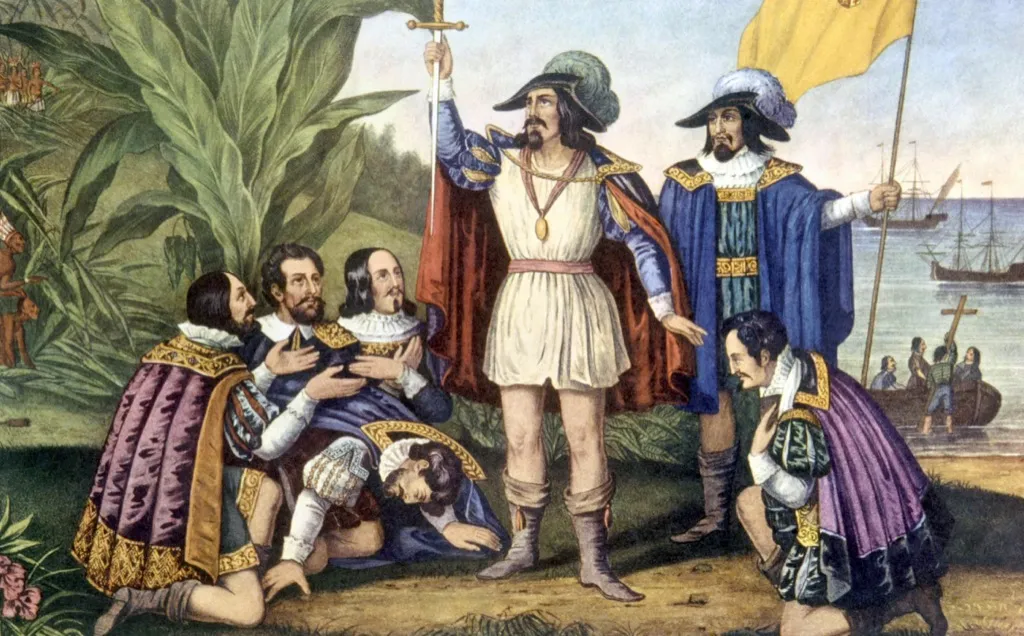
Many students learned in their history classes that Christopher Columbus "discovered" America as if it was vast unoccupied land that was his, and Spain's, for the taking.
Though aspects about Columbus' voyage and 1492 arrival to what we now call North America remain true, few teachers introduce the subject these days in the same uncomplicated way that places Columbus as a hero and sidelines the land's original inhabitants. Even if discussed in terms of Europeans discovering North America, that credit should instead go to Norse missionary Leif Erickson. And for more great knowledge to drop on your friends and family, here are the 30 Crazy Useful Facts You've Never Heard Before.
2
Pilgrims and Native Americans Shared in a Happy First Thanksgiving
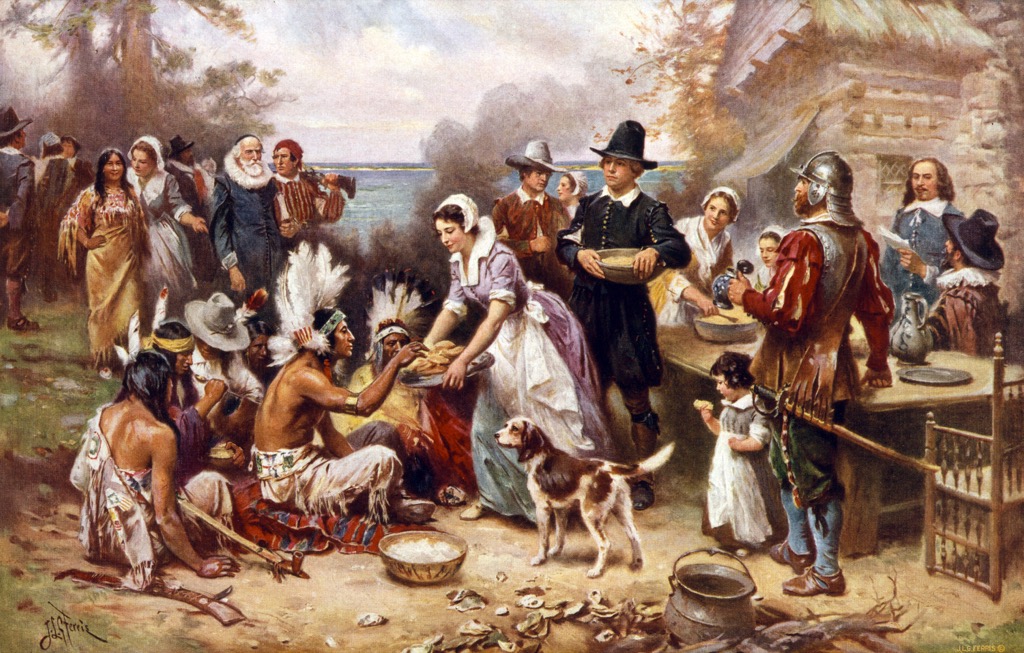
Learning about the first Thanksgiving, we are told about the Pilgrims, who were ill-prepared for the harsh winter of the New World, were offered assistance by the kindly Native Americans, who provided food and agricultural lessons.
In fact, more than 90% of the native population of New England, where the first Thanksgiving supposedly took place, had been wiped out by the time the Pilgrims landed, due to diseases—smallpox, chicken pox, bubonic plague—introduced by Europeans. Yikes, and for more untruths you should know about, check out these 40 Facts You Learned in the 20th Century That Are Totally Bogus Today.
3
European Technology Was Superior to the "Primitive" Technology of Native Americans
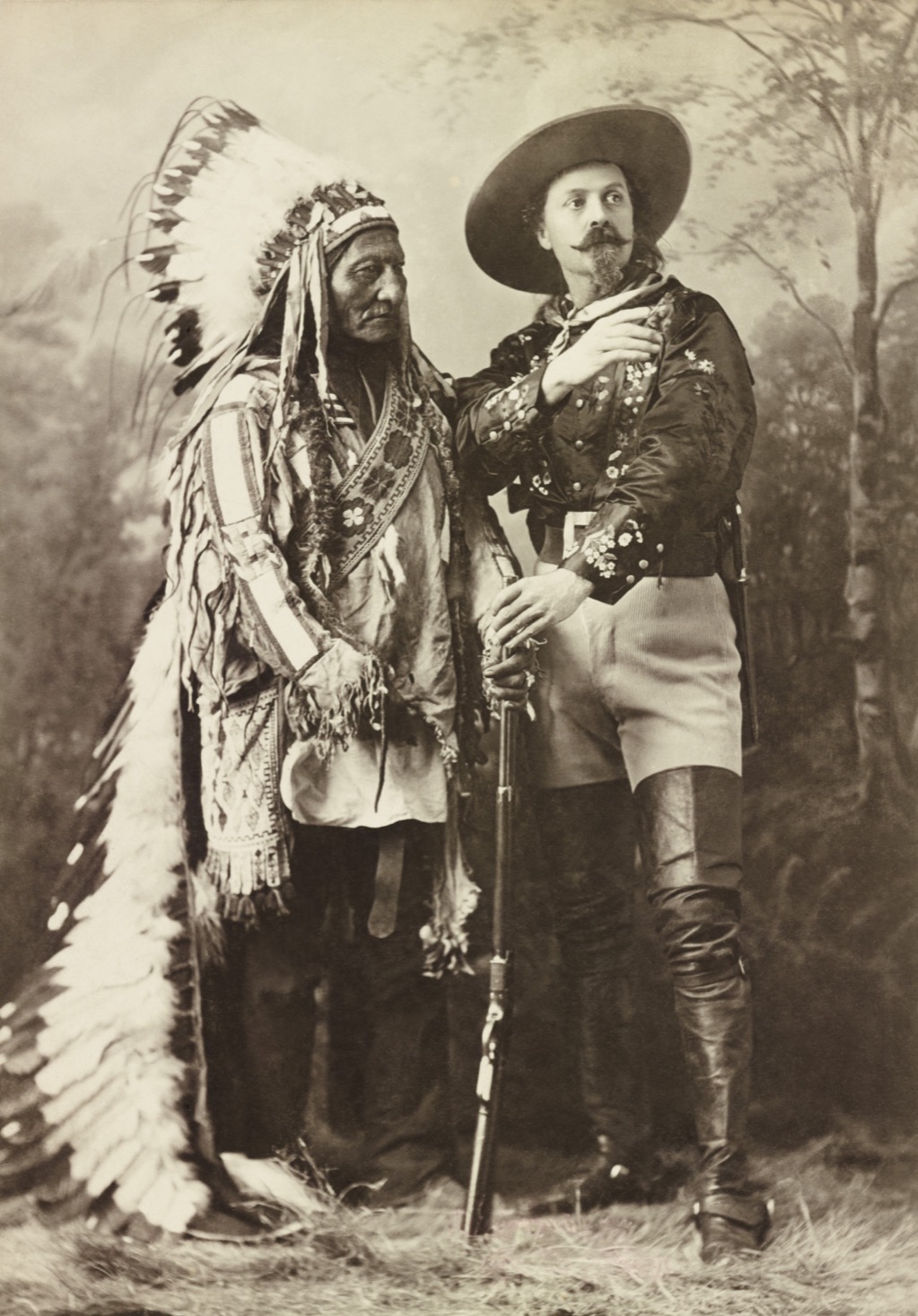
We were often taught that the culture and technology of Europeans was somehow superior or more evolved than that of the Native Americans who lived in the U.S. But as historian Karen Kupperman puts it: "The technology and culture of Indians on America's east coast were genuine rivals to those of the English, and the eventual outcome of the rivalry was not at first clear."
Native Americans, when their populations were not ravaged by disease, successfully drove off European interlopers, such as Samuel de Champlain's attempt to settle Massachusetts in 1606 or the Plymouth Company in Maine the following year. And for more fascinating history, check out America's 30 Most Fascinating Unsolved Mysteries.
4
Manhattan Was Bought for $24

One more about misunderstanding Native Americans: A favorite story in history class is that the Lenape Indians, who occupied what would become New Amsterdam and eventually New York, didn't realize how valuable the land they possessed was and sold it to the Dutch settlers for 60 guilders—or about $24—worth of goods. Some call it the greatest business deal ever made.
In fact, the natives actually had a very different understanding of the concept of "land ownership" and didn't see this as a "sale" so much as the offering of the land for the use of the newcomers. And for geography lessons, check out The Craziest Fact About Every U.S. State.
5
Hitler Created the Autobahn

The high-speed motorway that stretches through Germany was often credited to Adolf Hitler and his Nazi party, as a job-fueling project that helped the country during a time of economic difficulty, and one of the reasons the Führer was able to rise to power.
In fact, the highway was already up and running by 1931, two years before he would become chancellor. While he would be photographed shoveling a heap of dirt on regional additions to the stretch of road, this was merely jumping on the bandwagon of work that had already been done. And, yes, for the record: driving the Autobahn is definitely on our list of the 40 Best Bucket-List Experiences for People Over 40.
6
Mussolini "Kept the Trains Running on Time"

Benito Mussolini is remembered for all types of crimes and cruelties committed to forward his fascist aims, but history classes often included the caveat, "but he made the trains run on time."
Similar to the Hitler Autobahn myth, Mussolini was mainly taking credit for the accomplishments others pulled off following the First World War—but before he came to power.
7
The Founding Fathers Were All Christian
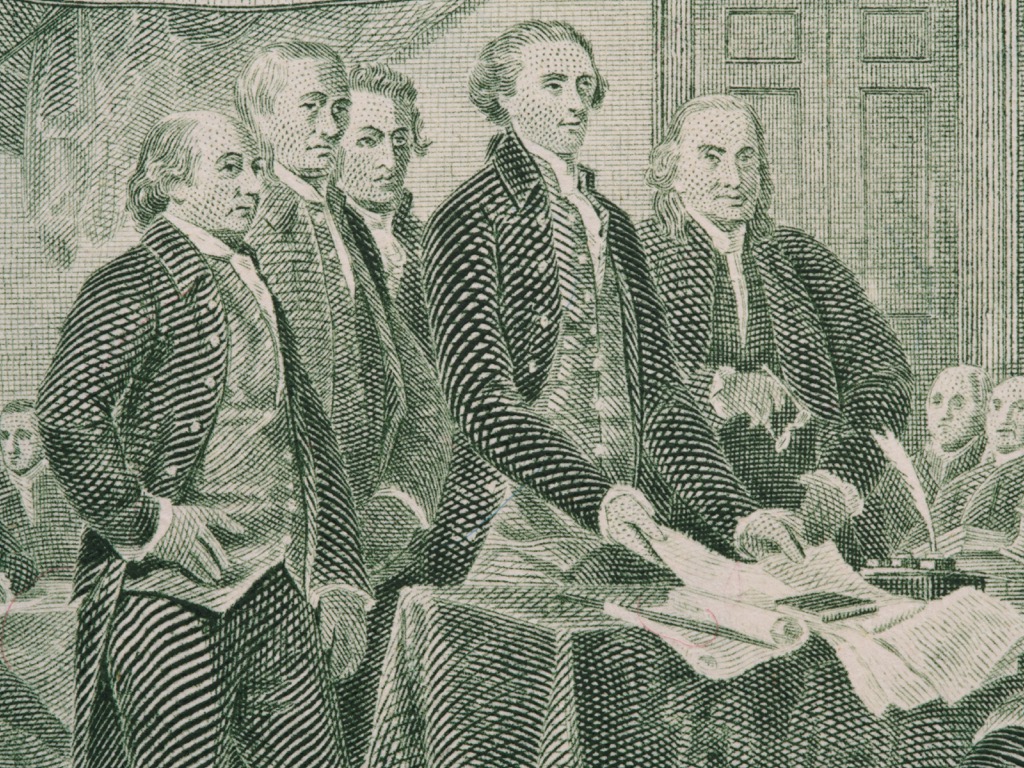
While we probably won't stop hearing that "the U.S. is a Christian nation" from politicians anytime soon, schools are starting to present a more nuanced and accurate view of our founders. That includes the fact that Thomas Jefferson and Benjamin Franklin were deists (who don't follow the Bible even if they believe in a higher power), while George Washington was likely a believer in pantheism (that nature is god), while John Adams was a Unitarian, who did not believe Jesus was the son of God. And some much more recent history, check out these 20 Present-Day Facts No One Could Have Predicted Five Years Ago.
8
Helen Keller Was a Blandly Inspiring Hero
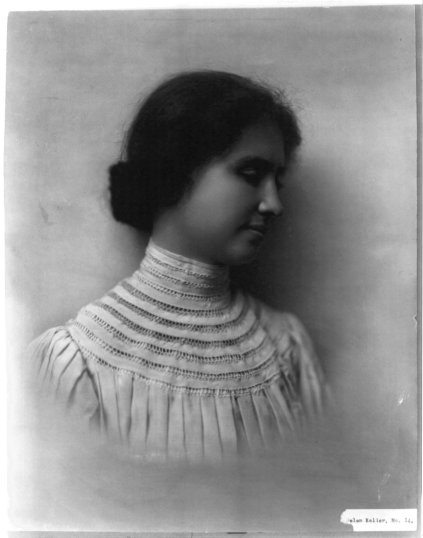
Though most students see The Miracle Worker and learn about the unimaginable challenges that Keller overcame to communicate and function in the world, her actual political views were rarely discussed in classrooms.
That is, Keller was in fact a radical socialist whose experiences of living with a disability led her to sympathize with others who were disadvantaged (and to realize that it was the lower classes who disproportionately suffered from blindness and more), leading her to lend support to vocally advocate for a new kind of political structure—which made her unpopular with the public of the day.
9
Humans Evolved From Apes
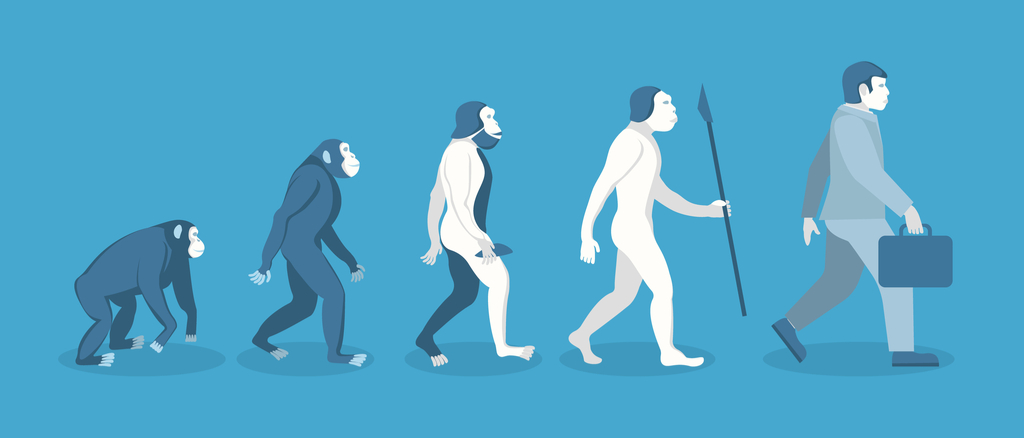
The debate between evolution and creationism continues to rage and doesn't look likely to go anywhere anytime soon, but something both sides should be able to agree on: Humans did not evolve from apes.
Evolution is the elimination of inferior species as better adapted ones continue and procreate. While humans and apes share the same ancestors, we were never apes, so that classroom talking point can be made a thing of the past. In fact, according to the folks at PBS: "Humans share a common ancestor with gorillas and chimpanzees. Scientists believe this common ancestor existed 5 to 8 million years ago. Shortly thereafter, the species diverged into two separate lineages. One of these lineages ultimately evolved into gorillas and chimps, and the other evolved into early human ancestors called hominids." And for more helpful knowledge, see these 40 Health Myths You Hear Every Day.
10
Abraham Lincoln Was on a Quest to Destroy Slavery
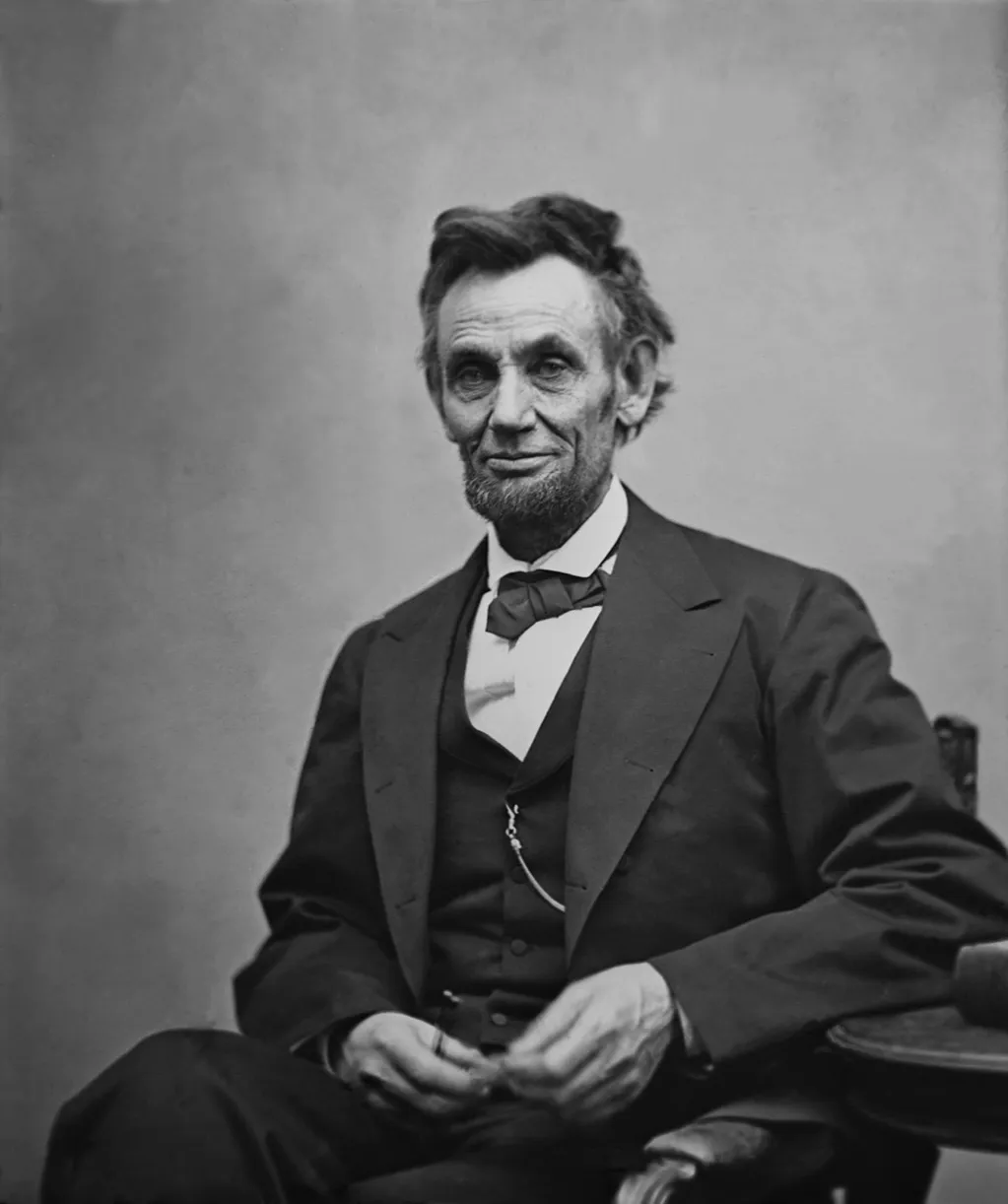
While Lincoln obviously did much to advance the freedom of slaves including the passage of the Emancipation Proclamation, he was hardly a vocal abolitionist at the time.
His main priority was to keep the Union from falling apart and expressed ambivalence about ending slavery, writing, "If I could save the Union without freeing any slave I would do it, and if I could save it by freeing all the slaves I would do it; and if I could save it by freeing some and leaving others alone I would also do that."
11
Slavery Only Existed in the South
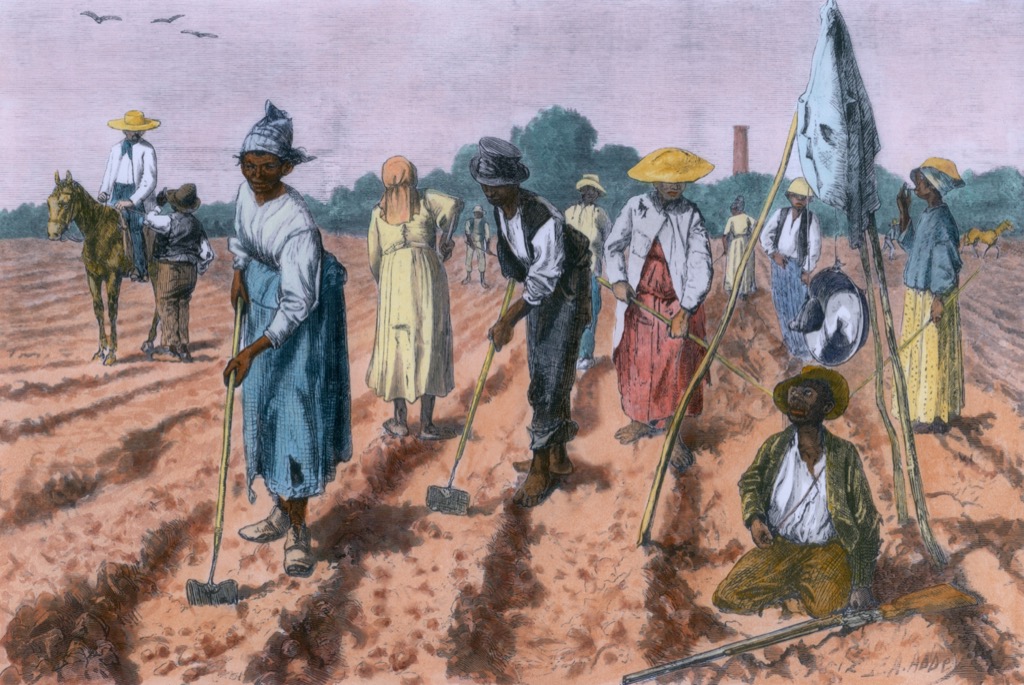
History teachers used to be in the habit of presenting slavery as a plague that only happened in the southern states of the U.S. Of course, it existed in all of the original colonies, and was part of northern states even after independence was won (New York did not officially end it until 1827).
"Many people continued to be enslaved there by travelers from the slave-holding South until nearly the time of the Civil War. Connecticut ended slavery later still," College of William and Mary professor Michael Blakey told Time.
12
Queen Victoria Was a Prude
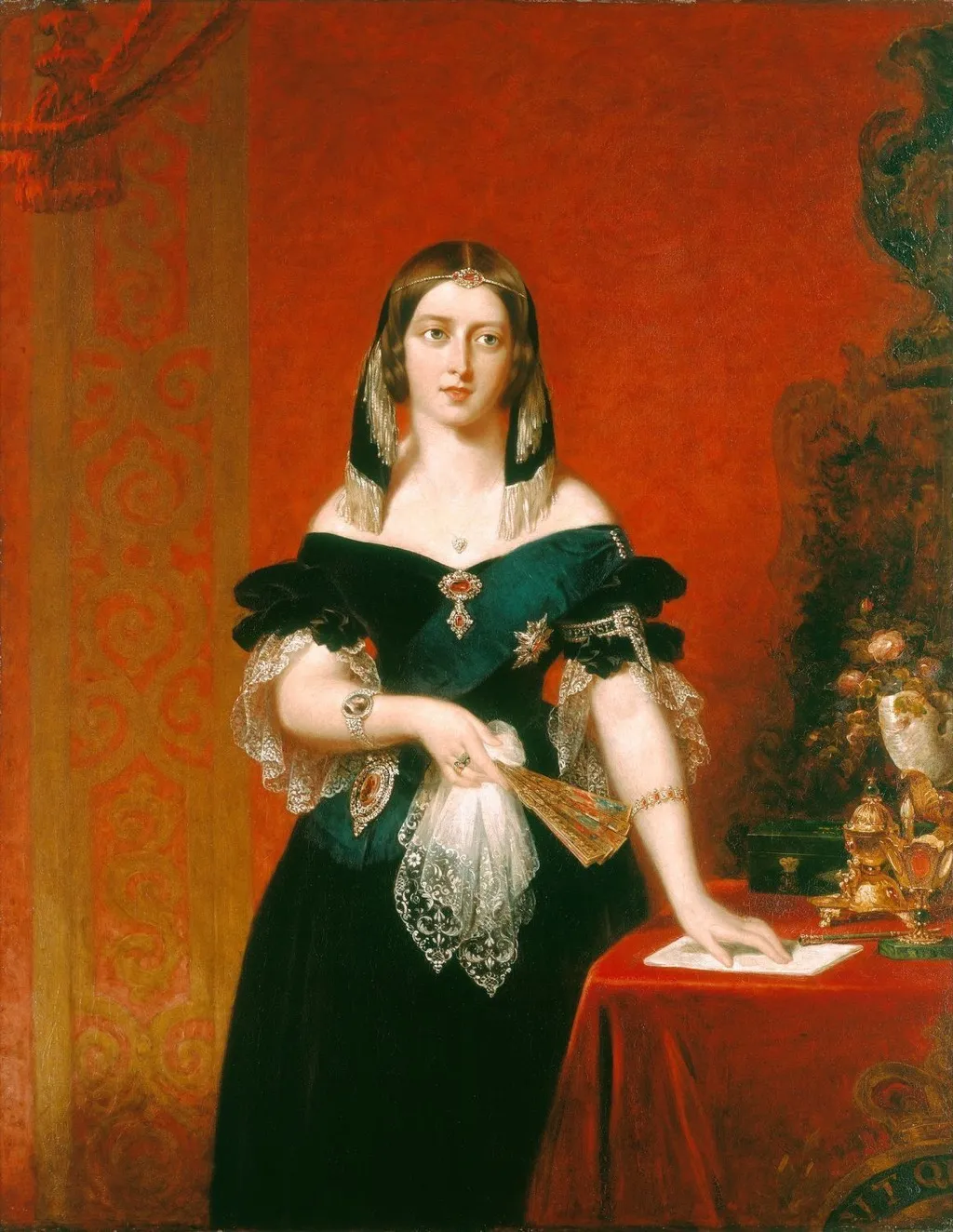
While the Victorian era is known for its constraining outfits and slightly repressive attitudes to sexuality, these characteristics were often extended to Queen Victoria herself. In fact, while she was hardly sex-crazed, she was happily and by all accounts passionately married to Prince Albert, and was known to be comfortable with the naked body—at least, she counted a number of nude paintings among her art collection and gave a few to Albert for his birthdays. And for more on powerful women, check out these 20 Timeless One-Liners from History's Extraordinary Women.
13
Van Gogh Cut Off His Ear for Love
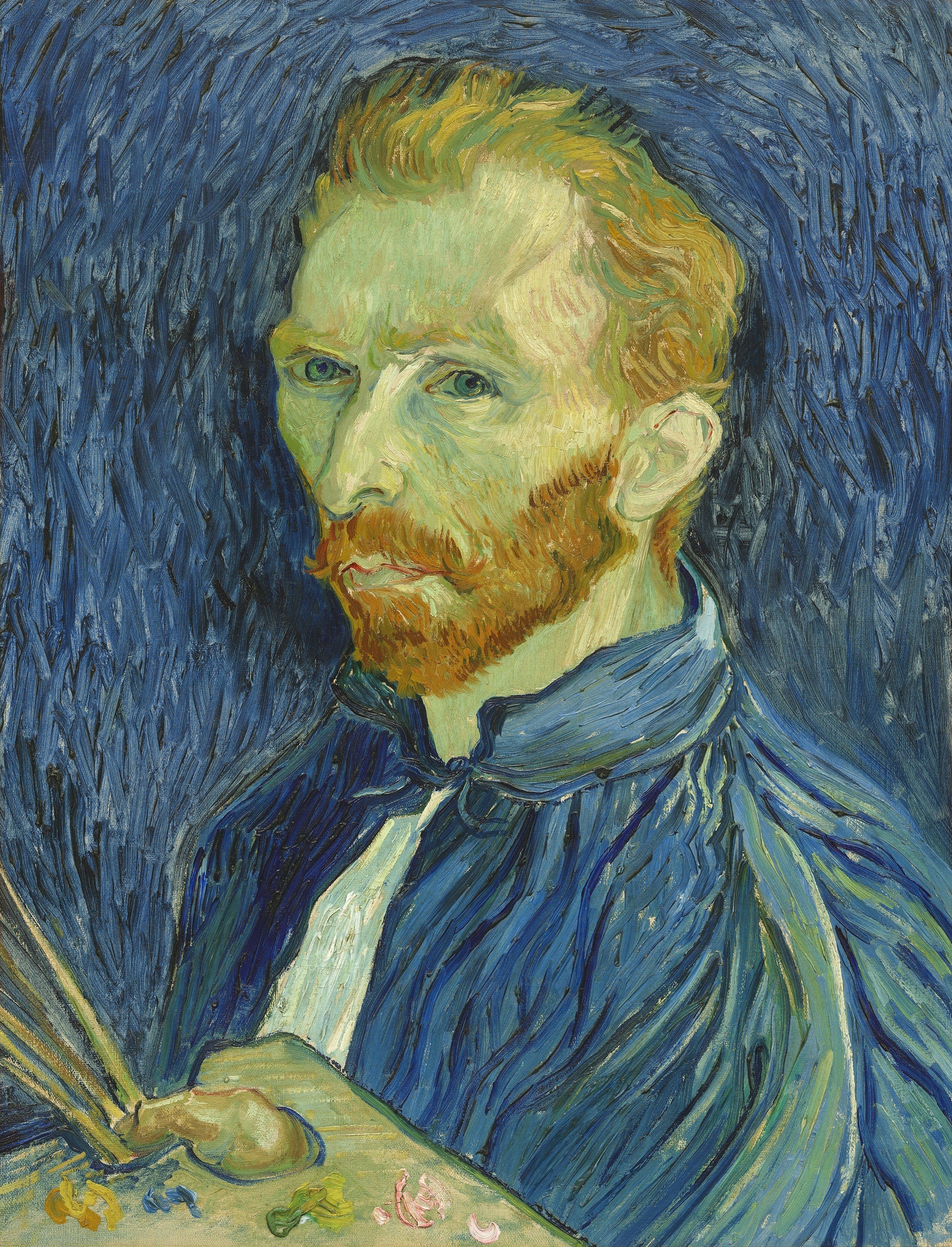
This is a favorite tale that students learn in early art history—that the lovelorn Vincent Van Gogh cut off his ear in some kind of attempt to get the attention of the woman who shunned him. In fact, more recent scholarship suggests that the ear was cut off by fellow painter Paul Gauguin. Whether that's true or not, the "cutting off his ear for love" story is almost certainly false.
14
Columbus Was Trying to Prove That the Earth Was Round
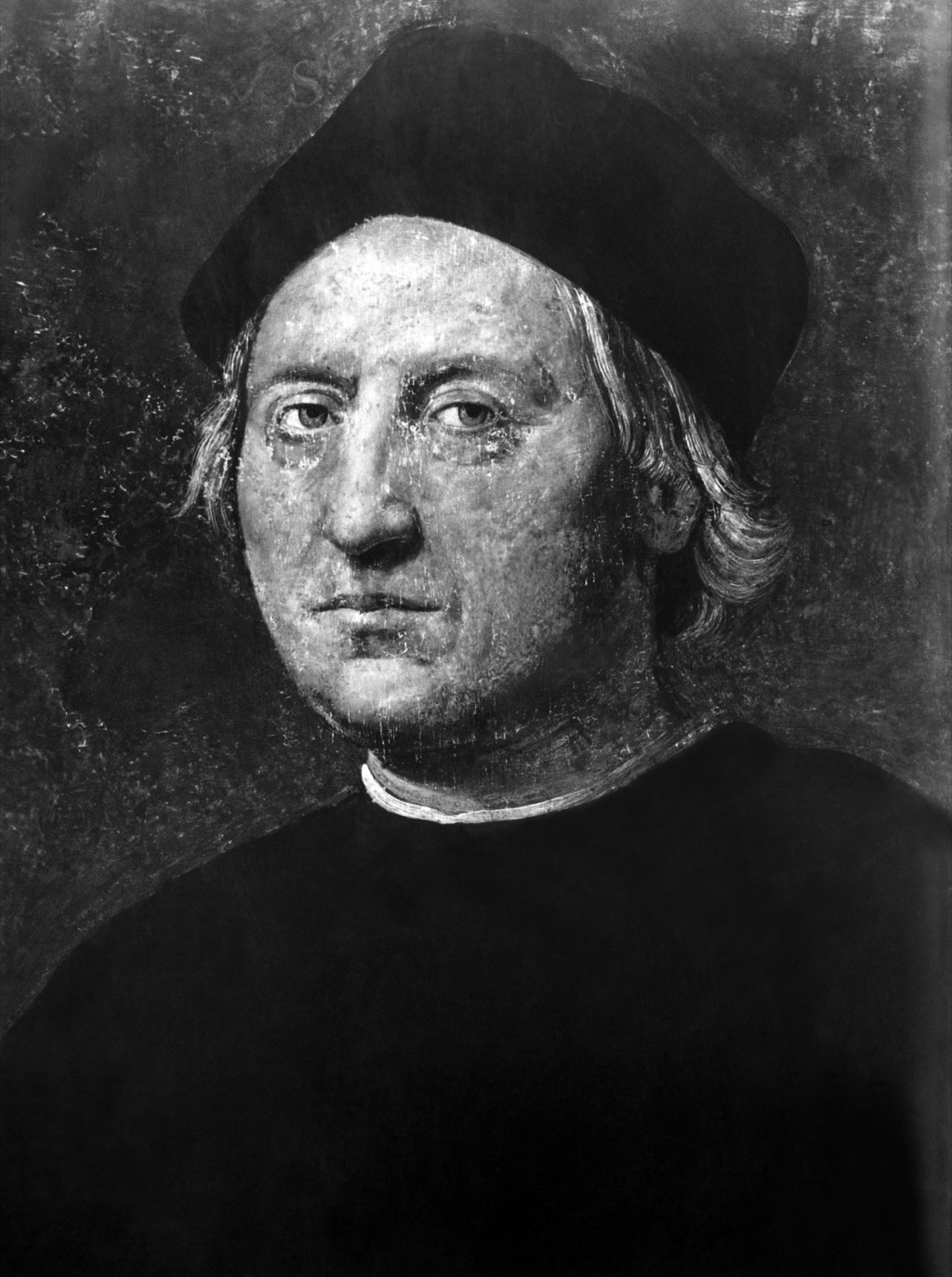
Another untrue Columbus lesson was during the 15th century, most believed the Earth was flat and he took it upon himself to disprove this foolishness. In fact, all evidence shows that people were well aware during this time that the Earth was round. It wasn't until the 19th century, when writers such as Washington Irving put forward this myth partly satirically, partly to contrast themselves with those they saw as deliberately ignorant or foolish.
15
There Were 13 Original Colonies
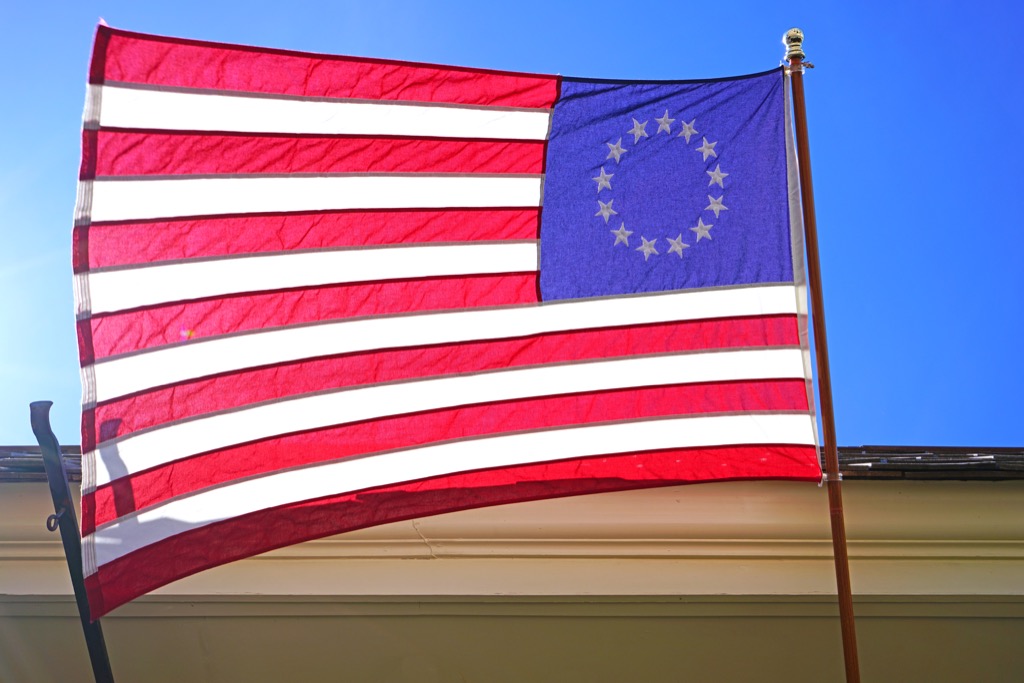
This one is much more "inaccurate" than "offensive," but still likely to have become less commonly taught. Despite the 13 stripes on the flag, there were only 12 colonies. Delaware was part of Pennsylvania until the Revolutionary War (prior to that the territory belonged to Maryland for a bit). Then it was known simply as the "Three Lower Counties."
16
Women Were Burned at the Stake During the Salem Witch Trials
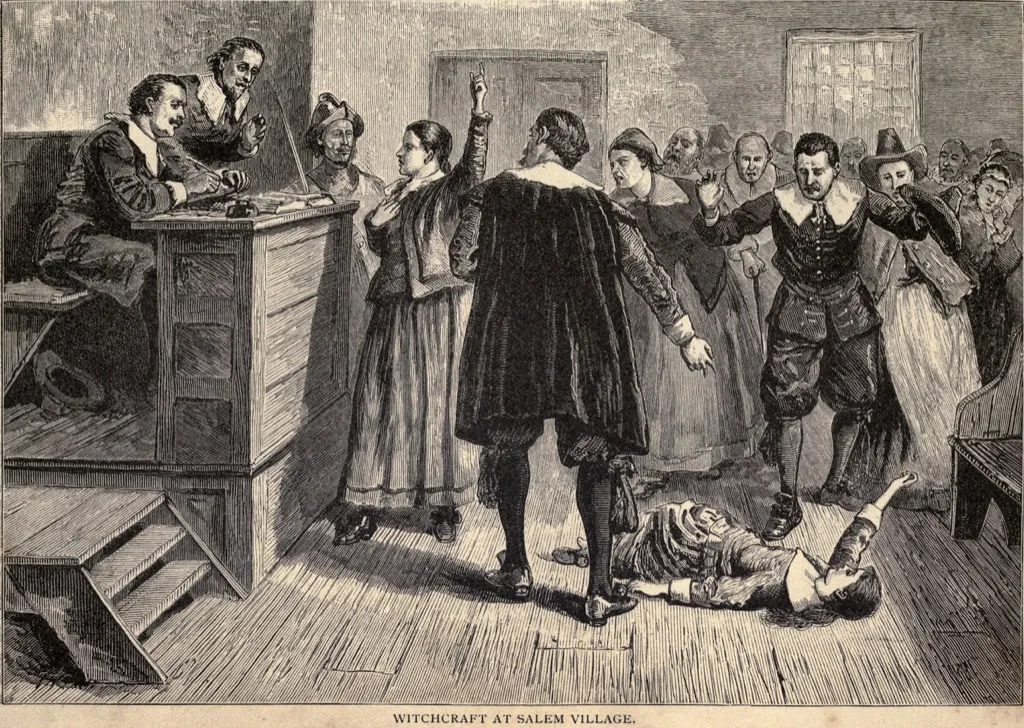
While this was common practice in medieval European trials of "witches," in the U.S. colonies when the ignorant and cruel practice returned, the women convicted were executed by hanging, not burning.
17
Women's Liberation Was Hostile to Men

"No social movement, arguably, has been so misrepresented as the 1960s-'70s women's movement," New York University history professor Linda Gordon tells Time. "In these myths, feminists were single, middle class and white; mainly concerned with 'sex issues,' such as pornography, abortion rights, sexual harassment and rape; and hostile to men. Each is wrong."
She emphasizes that the movement stressed valuing unpaid labor at home as much as equal access to jobs and better pay, seeking ways to make the family more functional and nurturing for everyone—including men.
18
Julius Caesar Was Born by Caesarian Section
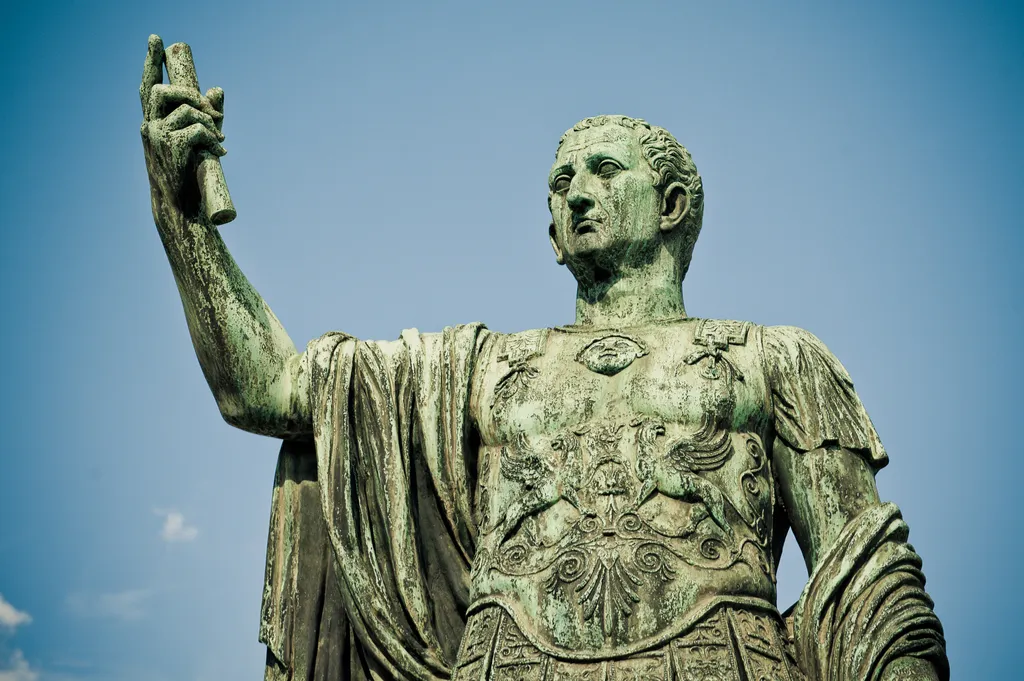
Few lessons about the Roman general would not include a mention that his name is where the term "Caesarian section" originates—because that was how he was born. But during this time, since it was so risky, such procedures were only conducted on mothers who were dying or already dead—and Caesars mother, Aurelia, survived her son's birth. And yes, know that Caesar definitely made our list of the 15 White Lies with Huge Historical Consequences.
19
The United States Is a Pure Democracy

While it was certainly more democratic than the monarchy back in England, the government created by the Founding Fathers and which continues today has never been the kind of one-person-one-vote republic that "democracy" would imply. Louisiana State University American history professor Nancy Isenberg points out that suffrage was severely restricted from the beginning, with each group or demographic (blacks, women, the poor) having to fight for the right to vote. "[T]he Electoral College denies voters the right to directly elect the president, which the Supreme Court reconfirmed during the contested 2000 election," she explains. "The winner-take-all proviso for awarding state electoral votes disfranchises minority party voters."
20
Dressing as Native Americans is Fun

To get into the spirit of Thanksgiving or when learning about the history of the United States' original inhabitants, schools often got kids to personally experience a bit of history by donning a feathered headdress, pig tails, or even brown face. That may have seemed like an effective learning tool a few decades ago, but today that kind of appropriation has fallen far out of fashion. And for some fiction that could one day become fact, check out these 25 Crazy Predictions About the Next 25 Years.
To discover more amazing secrets about living your best life, click here to sign up for our FREE daily newsletter!





















